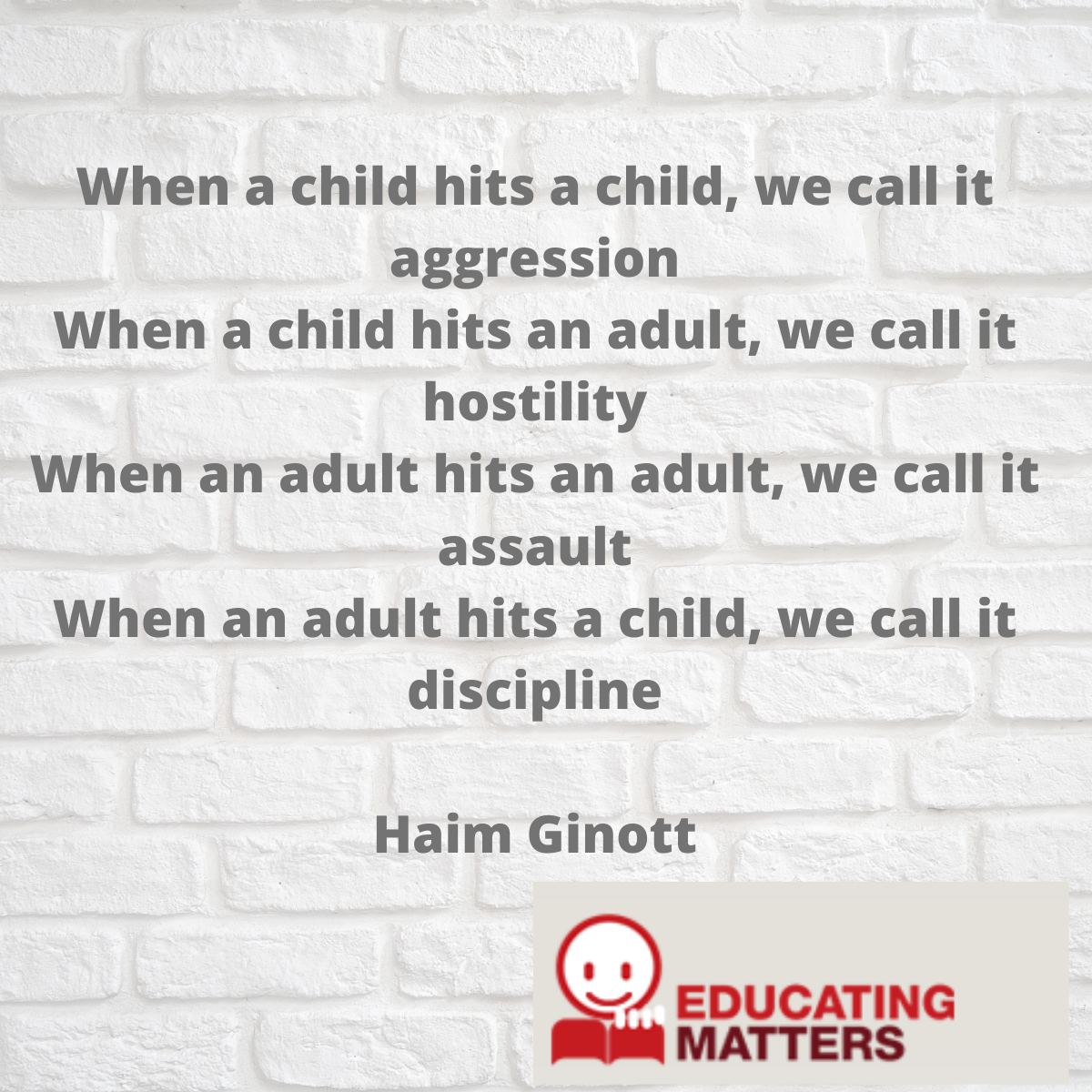April 30th is ‘National Spank Out Day’ in the US. In the UK we don’t use the word ‘spank’ but it’s still a very important topic to address. Although the concept of parents hitting children as a form of discipline is thankfully largely regarded as being unacceptable, it still happens and amongst toddlers more than any other age group.
Why do parents smack?
Parents who resort to smacking may do it because that is what their parents did to them and even if it’s deep in our subconscious, the way we were raised has a deep impact on how we raise our children. Smacking your child does not make you a bad person, it could just perhaps be what was modelled to you as a child and you don’t know any effective alternatives.
When a parent smacks their child, it usually means they have been emotionally triggered, are struggling to regulate their own emotions and have lost control. Our children can push our buttons like nobody else in the world, for a whole host of reasons. See the wonderful work of Bonnie Harris (What to do When Your Kids Push Your Buttons) for more insight into this.
Responding to a child when they are having a meltdown, not listening or being openly defiant, is much more about parents learning how to regulate their own emotions and behaviour, to be able to stay calm, than it is about what the child is actually doing in the moment.
Why smacking doesn’t work
Over many years of working with parents from a vast range of backgrounds and cultures, some have said “My parents smacked me and I turned out fine.” So what is the issue with smacking?
Research clearly shows that smacking your child is ineffective, impacting negatively on children’s social, emotional and cognitive development. Children smacked in childhood are much more likely to suffer from anxiety, depression, drug use and resort to aggression as they get older. They have less capacity for empathy or the ability to develop their own sense of right and wrong.
Extensive brain research shows that children who are smacked have less grey matter in their pre frontal cortex which is the part of the brain that controls executive functioning skills, whilst their amygdalae have greater fear response and are more hyper-vigilant. That’s the part that puts you into fight, flight or freeze mode.
Parents are a child’s first and most important role model, meaning that children who are smacked are far more likely to use aggression towards others, be that siblings or partners. Smacking or hitting a child is essentially teaching them that it’s acceptable to use force to get what you want and is a strong predictor of violent behaviour. They are also at increased risk of being bullied or victimised and ultimately ending up in abusive relationships as adults.
What are more effective forms of discipline?
The word ‘discipline’ means to teach and very often adults mistakenly believe that children need to be punished or to suffer in order to ‘learn’ and adjust their behaviour. How many times have you hit or punished your child and found the same ‘misbehaviour’ is still repeated?
Smacking does not teach children how to behave better, how to understand why the behvaiour is wrong and what they could do differently.
Our job as parents is to teach our children self-discipline, to take responsibility and manage themselves. Smacking just teaches them to be immediately compliant, to be afraid of us and to focus on avoiding getting caught doing something wrong. It teaches nothing about how to navigate the world or build authentic relationship and connection.
It is impossible to really address this in the space of one blog post but I passionately believe that ‘Positive Parenting’ skills are the solution to foster co-operation without damaging your relationship. Children learn best when they feel heard and valued by their parents and mutually respected, not when they feel scared and constantly on the defensive.
Top alternative techniques include:
- Using ‘descriptive praise’ to focus on the positive and acknowledge when your child does something right.
- Using ‘emotion coaching’ to build connection with your child and help them to feel heard and understood.
- Understanding your child’s inborn temperament and stages of development.
- Setting clear and consistent boundaries and limits in a loving, empathetic, collaborative way.
- Consciously having realistic, age appropriate expectations.
- Using ‘natural’ and ‘fixing’ consequences as an alternative to punishment.
- ‘Setting up for Success’ so that we can be proactive rather than reactive.
- Looking after yourself and developing techniques to stay calm and manage your own triggers.
If you are still not convinced, for more information on the impact of smacking, a good starting point is a report analysing five decades of research involving over 160,000 children.

